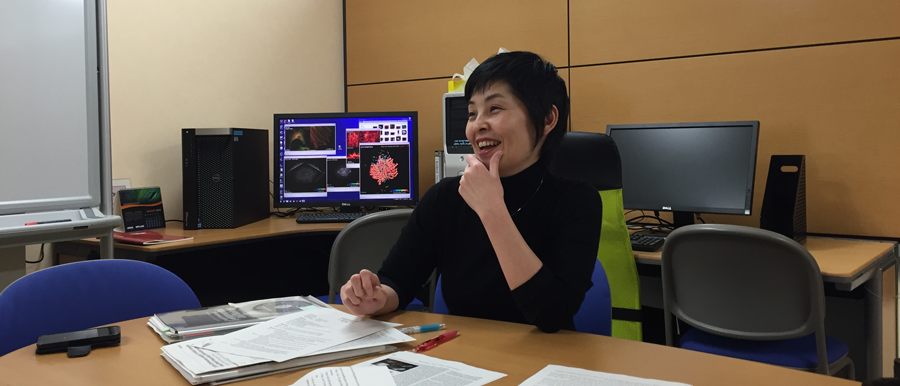Latest research animations
Self-assembly of spider silk
This gut microbe might protect against diabetes and reduce insulin resistance
NEW: One-way hydrogel guides motion of tiny worms!
Latest Posts
Of mice and NREM: In this brain circuit, memories depend on sleep
Dear RIKEN: Can you bring frozen animals back to life?
From evolutionary morphology to Godzilla
Award-winning 3D images of living cells
Electrolithoautotrophs
Element 113: “discovery” or not?
Black smokers and electroecosystems
Science communication symposium
RIKEN at a glance
About this blog
Let the blogging begin!
Crying baby? Science says walk, then sit
Cyborg cockroaches to the rescue!
Ethanol pretreated soil protects plants from drought
Marsupial heart regeneration ability given to mice
How an herbal medicine protects against inflamed bowels
Robotic AI helps efficient growth of replacement organs
Extra “eye” movements are the key to better self-driving cars
Palaeospondylus: mystery of vertebrate evolution solved
Xist knockout rescues miscarriages in mice
Aug
23

Scary places burned into our minds by constant memory replay
Researchers discover the mechanism through which places associated with negative experiences are burned into our memories.
Aug
18

Toward human hibernation: cold-resistant mouse stem cells
Cold-resistant stem cells from “deep torpor” mice are a big step toward understanding why tissue survives hibernation.
Aug
15

A researcher’s journey part 2: emotional memory and being human
Joshua Johansen from RIKEN CBS explains emotional memory, what his lab is doing, and what makes a good researcher.
Aug
8

Mathematical model predicts self-organized learning in real neurons
The free energy principle predicted how real neural connections changed as neurons “learned” in a dish.
Aug
7

Deadly fungi beaten with fatty acid synthase inhibitor
Jul
12

A new and improved way to store hydrogen
A simple chemical reaction allows hydrogen-carrying ammonia to be stored and retrieved cheaply and easily.




















